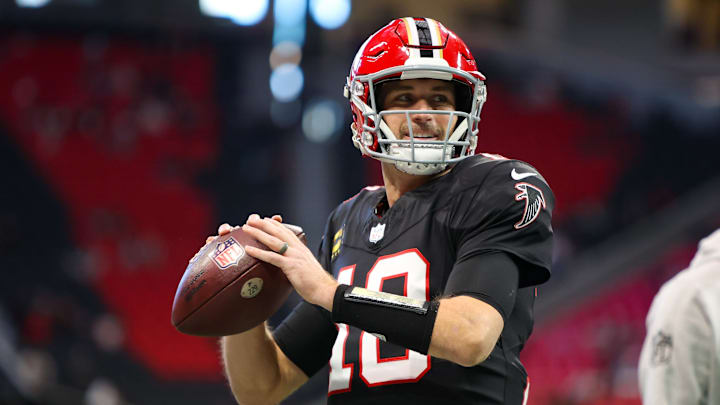The New York Jets have been the subject of some wild trade speculation in recent months, but none quite as head-scratching as this latest proposal.
In a recent bold predictions article, Bleacher Report's Brad Gagnon suggested the Jets could trade for Atlanta Falcons quarterback Kirk Cousins at the 2025 deadline in a hypothetical proposal that manages to be both illogical and disconnected from the Jets’ current direction.
The premise? That if Justin Fields falters and the Jets are “increasingly desperate,” they could take a swing on Cousins, who is reportedly pushing for a trade out of Atlanta.
The Falcons might want to move him, and understandably so. But that doesn’t mean the Jets make any sense as a landing spot.
The idea hinges on outdated assumptions about the Jets’ goals, timeline, and quarterback situation. In reality, there’s almost no scenario in which this would be a good move for the team.
The NY Jets make no sense as a Kirk Cousins trade destination
Let’s start with the obvious: Kirk Cousins is not walking through the door. The soon-to-be 37-year-old is coming off a disappointing season with the Falcons, where he led the NFL with 16 interceptions and was benched late in the year.
That came after a 2023 campaign that ended prematurely due to a torn Achilles. Despite that injury, the Falcons handed him a four-year, $180 million contract in the 2024 offseason, only to draft Michael Penix Jr. with the No. 8 overall pick weeks later.
Now, reports suggest Cousins wants out, and the Falcons would probably oblige if the right offer came along. But trading him wouldn’t be cheap.
Atlanta would be forced to eat a lot of dead cap to make that happen. It also means any trade partner would be taking on a sizable contract for a quarterback whose best football is clearly behind him.
So why on earth would the Jets volunteer as tribute?
This is a team that just moved on from a similar situation. The Aaron Rodgers experiment ended in a financial mess, with the Jets absorbing massive dead cap hits over the next two years.
The front office pivoted to a far more logical, timeline-friendly option in Justin Fields, a high-upside flier with an affordable contract and the potential (however slim) to be the team’s long-term answer.
Fields isn’t guaranteed to work out, but his ceiling still makes more sense for a retooling Jets team than an aging quarterback with a shredded Achilles and a bloated price tag.
Even if Fields flames out, the Jets wouldn’t need to panic. Tyrod Taylor is one of the most competent backup QBs in the league and would be the obvious next man up, not a midseason trade for a 37-year-old on a disastrous deal.
There is one potential thread to follow, as Jets senior football advisor Rick Spielman helped orchestrate Cousins’ arrival in Minnesota and has strong ties to the quarterback.
But even with that connection, there’s no football logic behind the move, not unless the Jets suddenly abandon everything their offseason strategy was built around.
Yes, Cousins might be traded. But unless the Jets are allergic to learning lessons, they won’t be the ones picking up the phone.
